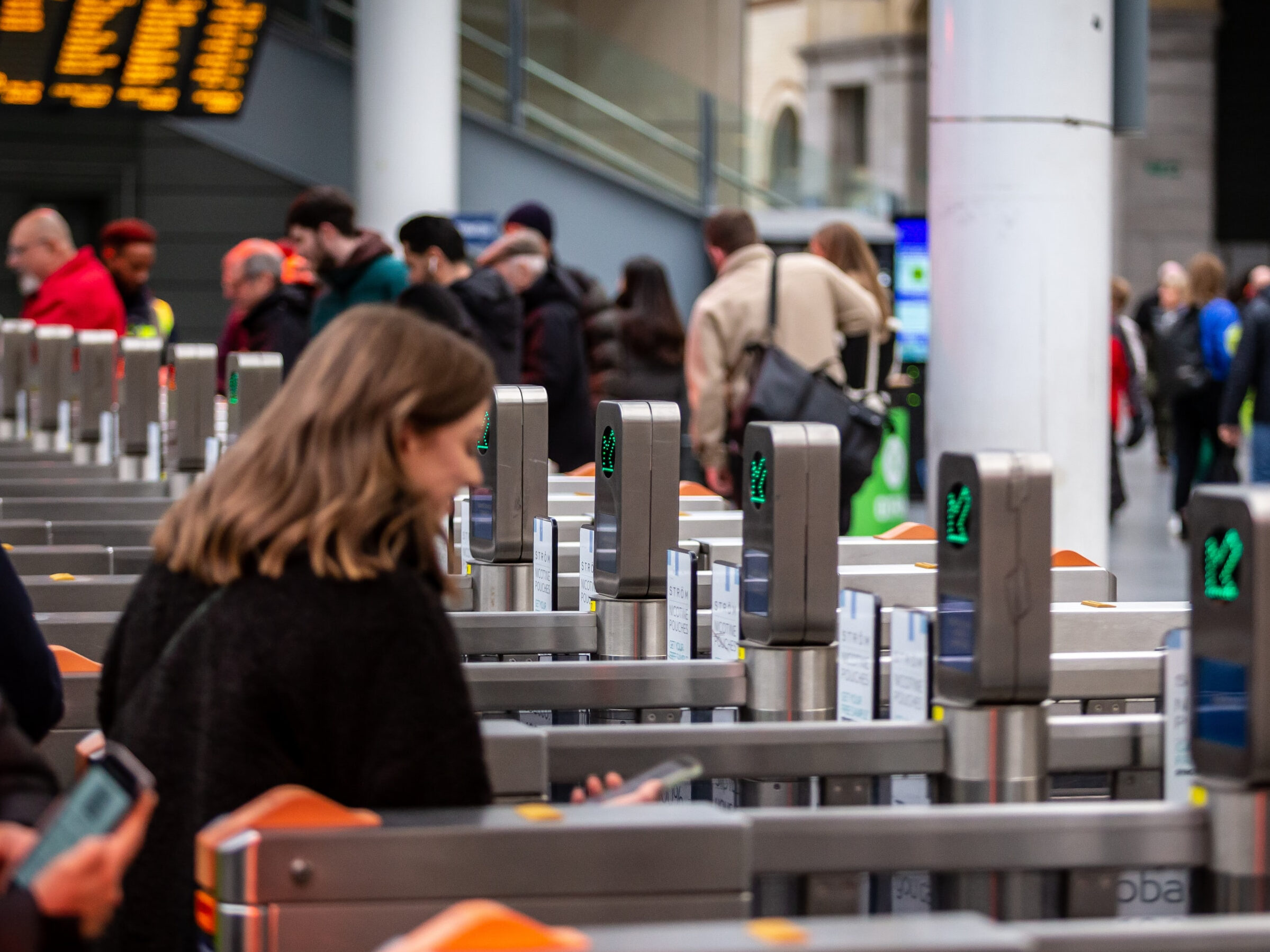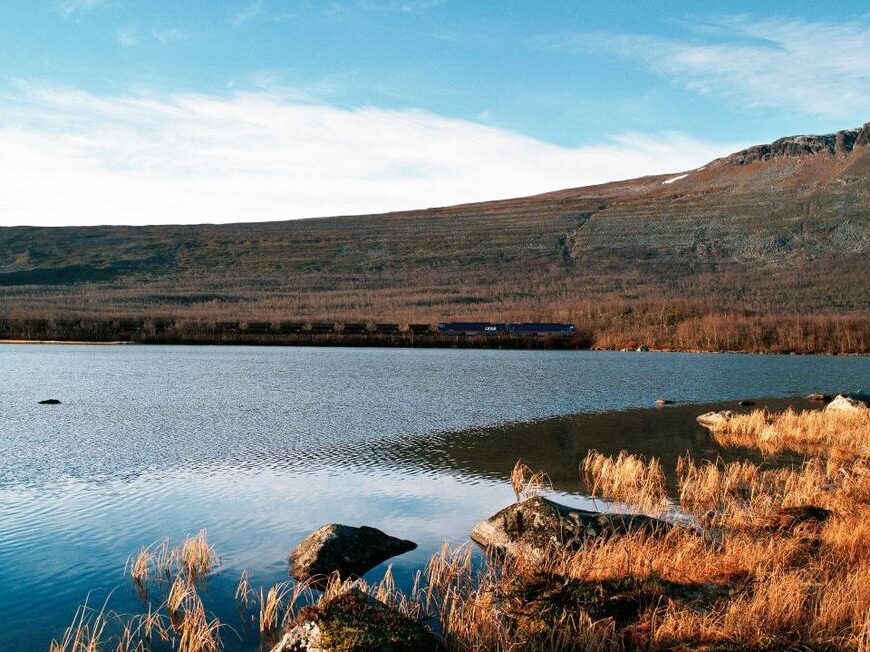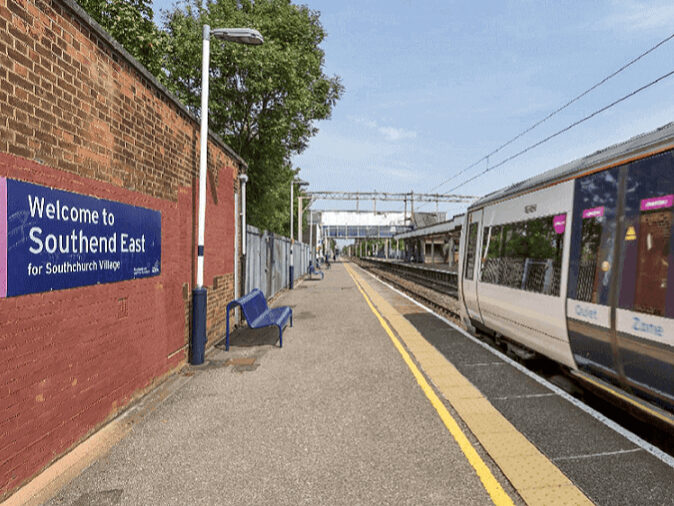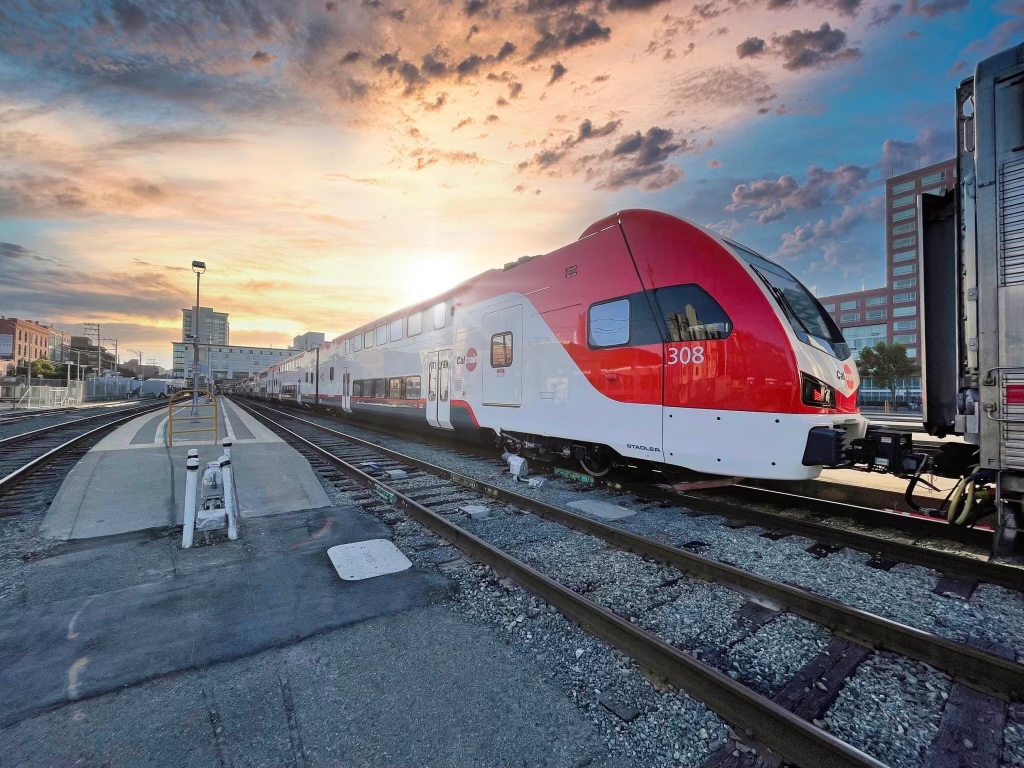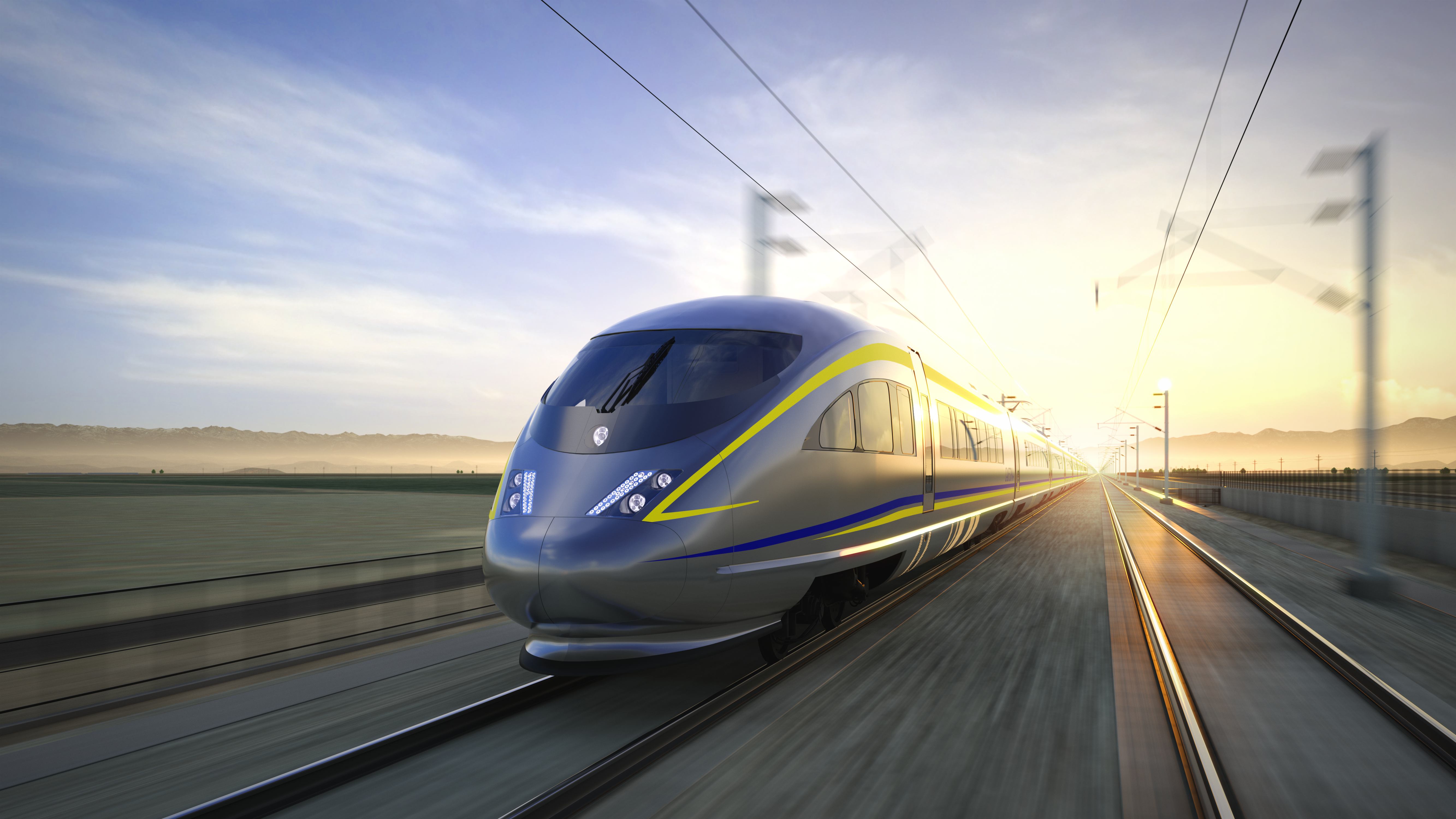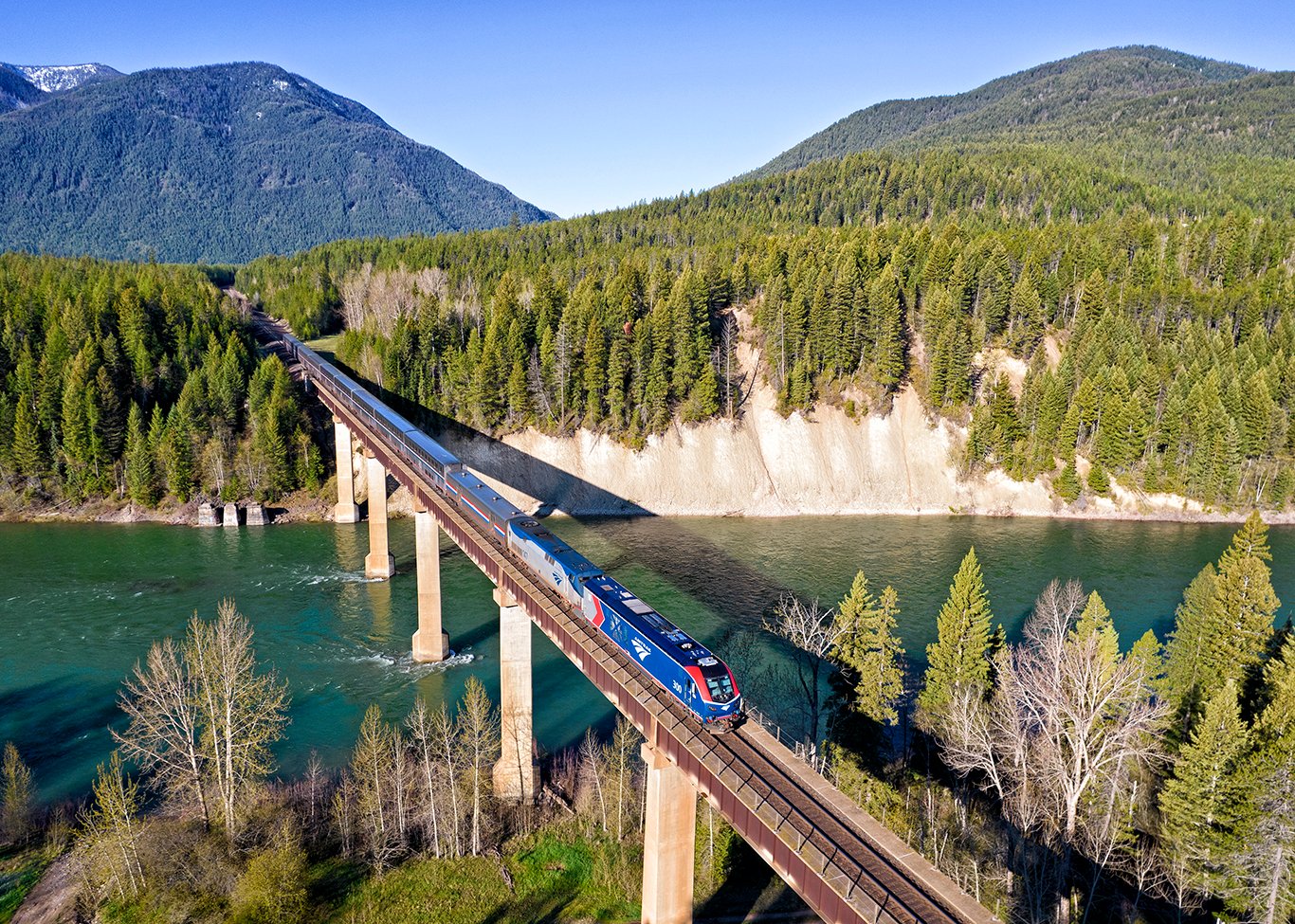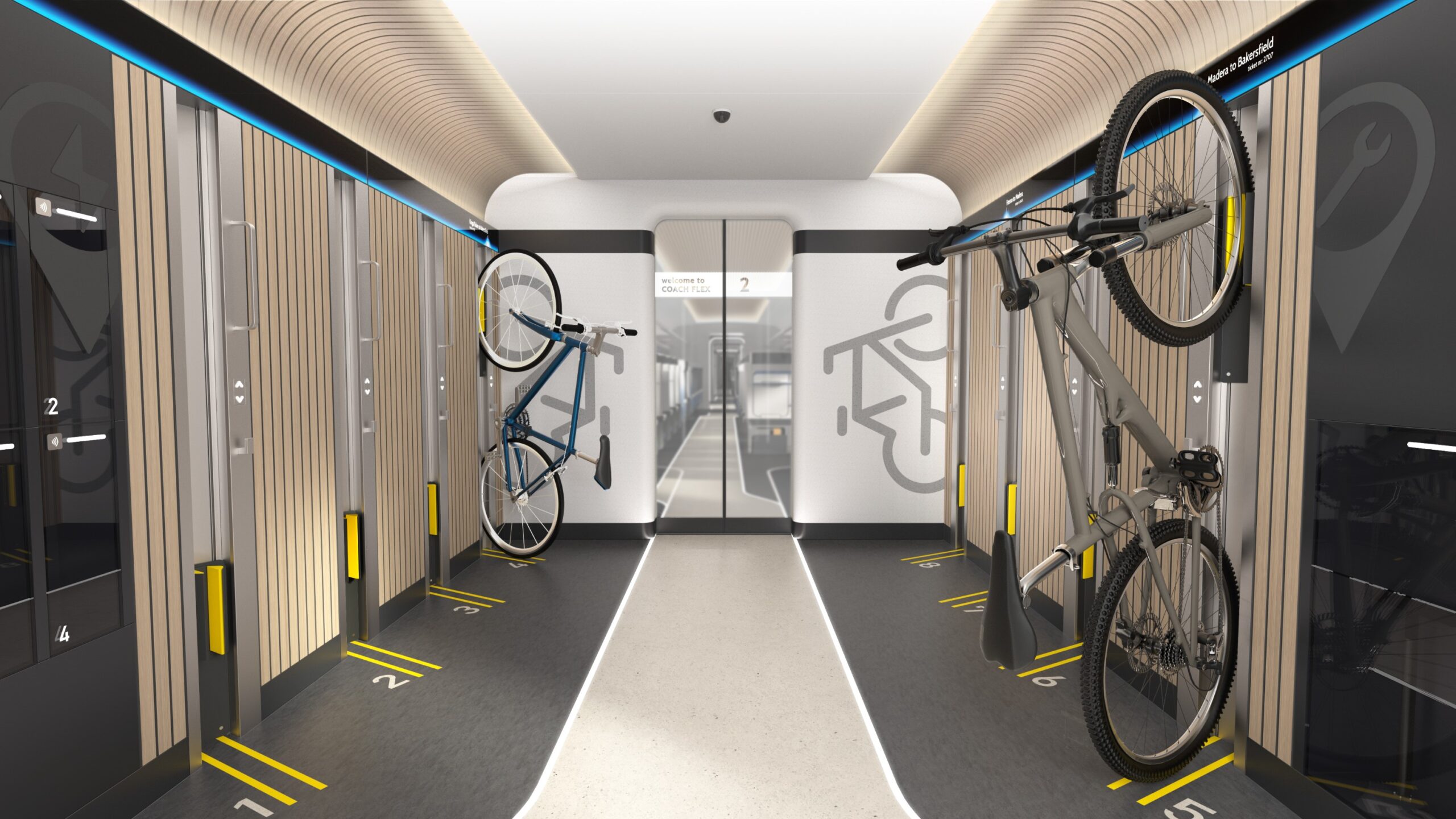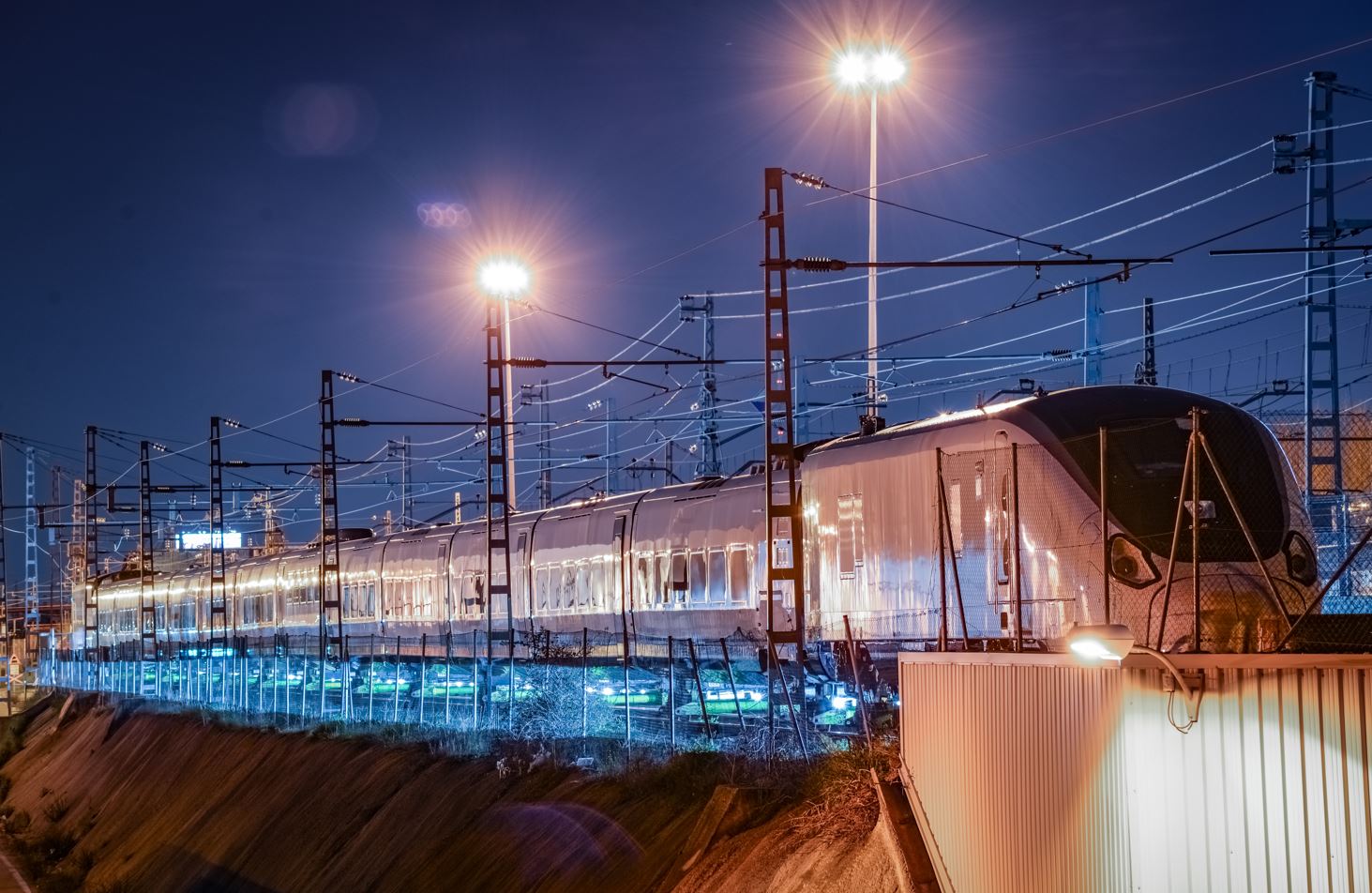Brightline West has officially broken ground on its high-speed rail project to connect Las Vegas and Southern California.
This 218-mile system will be constructed in the middle of the I-15 with zero grade crossings. It will stop in in Las Vegas, Nevada as well as Victor Valley, Hesperia and Rancho Cucamonga in California.
The vision is based on Brightline’s mission to connect cities across distances that are too short to fly but too far to drive. Instead, Brightline West will run fully electric trains at speeds of up to 200 miles per hour.
Brightline also anticipates that this watershed project will help establish a new industry and supply chain for future high-speed rail networks in the US.
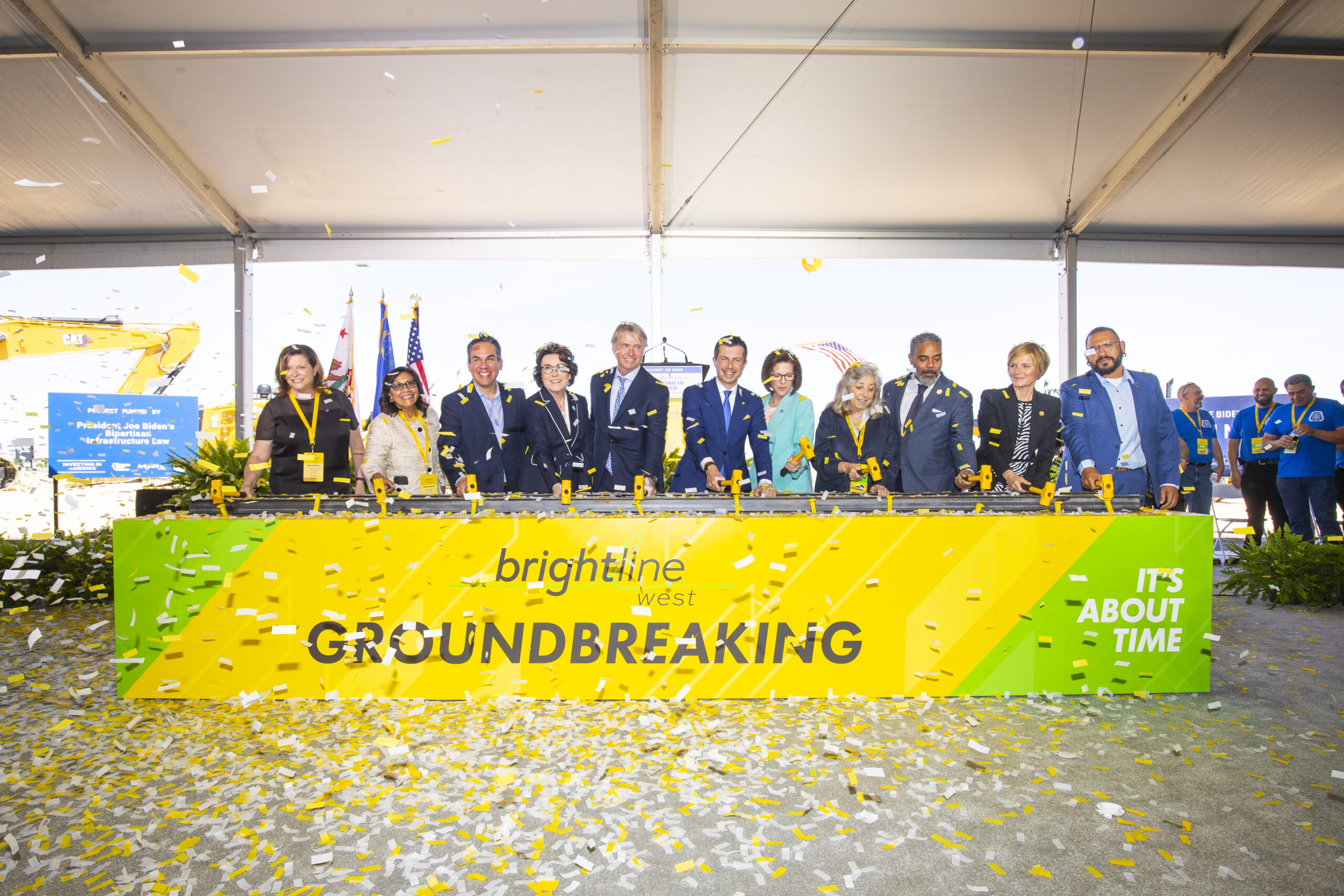
Wes Edens, Brightline founder said:This is a historic project and a proud moment where we break ground on America’s first high-speed rail system and lay the foundation for a new industry. Today is long overdue, but the blueprint we’ve created with Brightline will allow us to repeat this model in other city pairs around the country.
The Brightline West project was recently awarded 3 billion USD in funding from President Biden’s Bipartisan Infrastructure Bill.
The rest of the project will be privately funded and has received a total allocation of 3.5 billion USD in private activity bonds from the USDOT.
At the groundbreaking ceremony, US Transportation Secretary Pete Buttigieg said:People have been dreaming of high-speed rail in America for decades – and now, with billions of dollars of support made possible by President Biden’s historic infrastructure law, it’s finally happening. Partnering with state leaders and Brightline West, we’re writing a new chapter in our country’s transportation story that includes thousands of union jobs, new connections to better economic opportunity, less congestion on the roads, and less pollution in the air.
Stations and Facilities
Brightline West will connect Southern California and Las Vegas in two hours, which is almost half the time as driving.
Las Vegas Station
The Las Vegas Station will be built near the Las Vegas Strip, on a 110-acre property north of Blue Diamond Road between I-15 and Las Vegas Boulevard. The site provides convenient access to the Harry Reid International Airport, the Las Vegas Convention Center and the Raiders’ Allegiant Stadium.
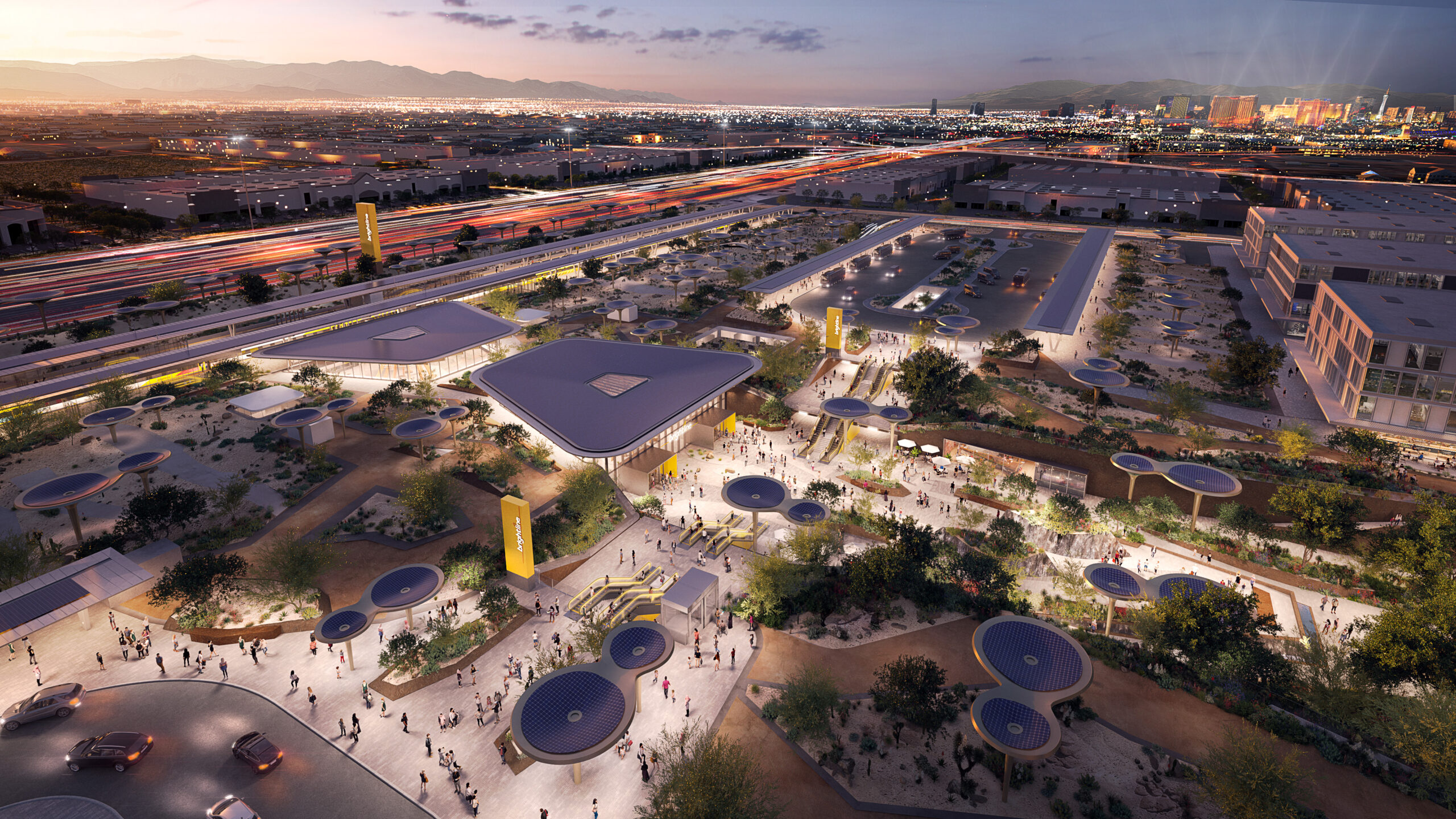
Victor Valley Station
The Victor Valley Station in Apple Valley will be located on a 300-acre parcel southeast of Dale Evans Parkway and the I-15 interchange. The station is intended to offer a future connection to the High Desert Corridor and California High-Speed Rail.
Rancho Cucamonga Station
The Rancho Cucamonga Station will be located on a 5-acre property at the northwest corner of Milliken Avenue and Azusa Court near Ontario International Airport.
The station will serve existing multi-modal transportation options including California Metrolink to seamlessly connect passengers to Downtown Los Angeles and other locations in Los Angeles, Orange, San Bernardino and Riverside Counties.
Hesperia Station
The Hesperia Station will be located within the I-15 median at the I-15/Joshua Street interchange. It will function primarily as a local rail service for residents in the High Desert on select southbound morning and northbound evening weekday trains.
Vehicle Maintenance Facility
The Vehicle Maintenance Facility (VMF) in Sloan, Nevada will be the base for daily maintenance and staging of trains.
This site will also serve as one of two hubs for the maintenance of way operations and the operations control centre.
More than 100 permanent employees will work here on a daily basis as train crews, corridor maintenance crews, or operations control centre teammates.
A second maintenance of way facility will be located adjacent to the Apple Valley station.
Market Demand
Brightline West sees the Las Vegas and Southern California travel market as one of the nation’s most attractive corridors, as over 50 million trips are made between these regions each year.
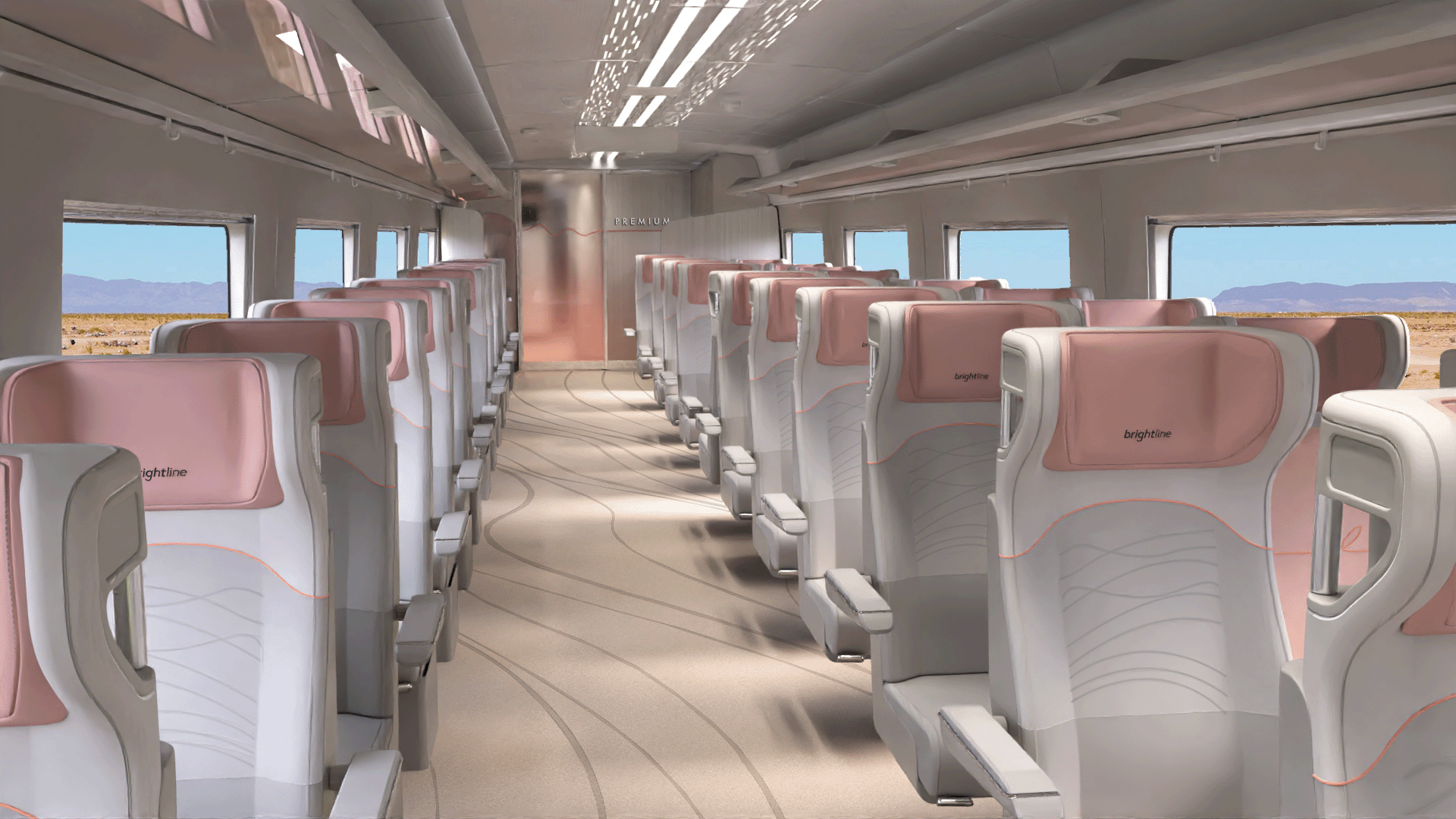
In California, around 17 million residents currently live within 25 miles of the Brightline West station sites. Studies show that one out of every three visits to Las Vegas come from Southern California.
Economic and Environmental Benefits
Brightline West reports that its 12 billion USD investment in infrastructure is expected to yield over 10 billion USD in economic benefits for both Nevada and California and will generate more than 35,000 jobs.
The initiative also aligns with the states’ climate aspirations. By introducing a zero-emission mobility alternative, the network is projected to reduce greenhouse gas emissions by 400,000 tons of CO2 annually.
Furthermore, Brightline West’s commitment includes environmental conservation. In partnership with the California Department of Fish and Wildlife and Caltrans, the company will establish three wildlife overpasses to facilitate the safe migration of native species, with a particular focus on preserving habitats for bighorn sheep.

















